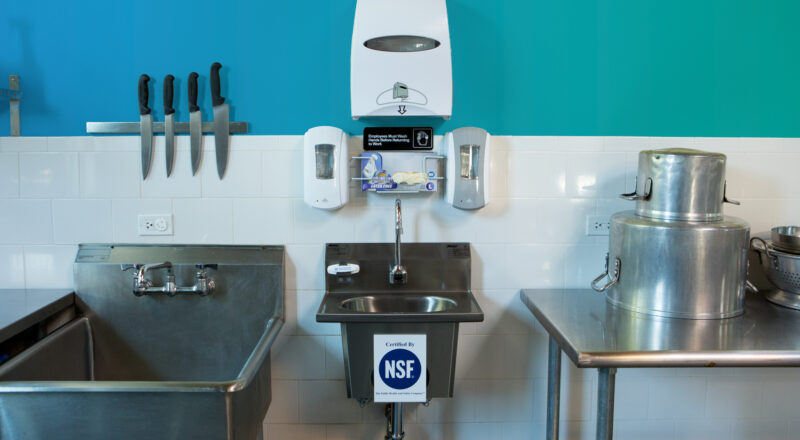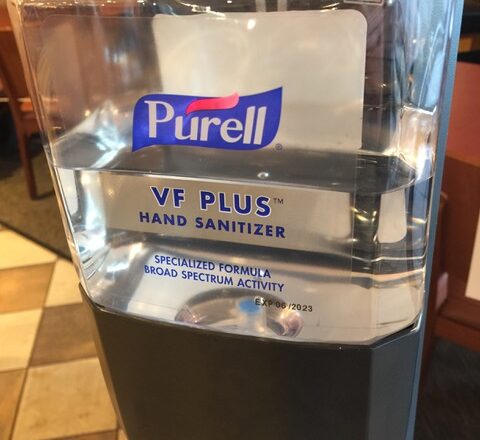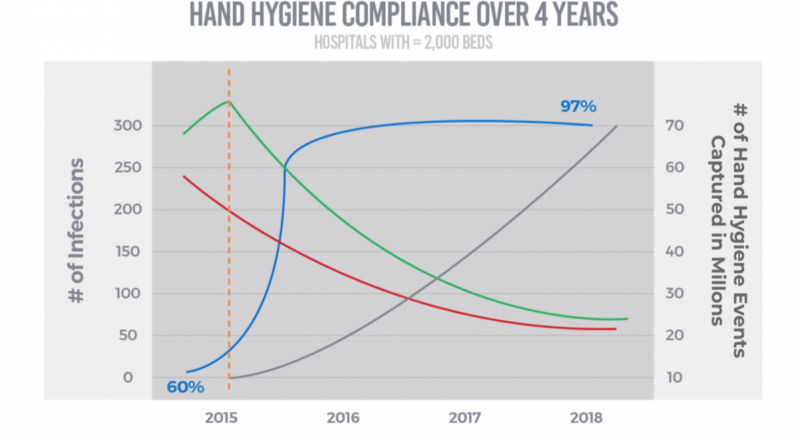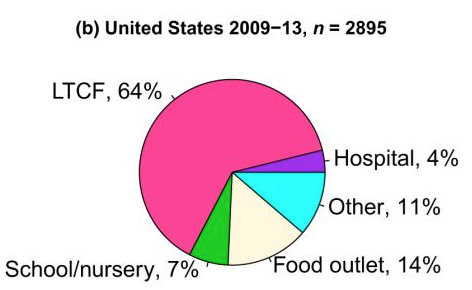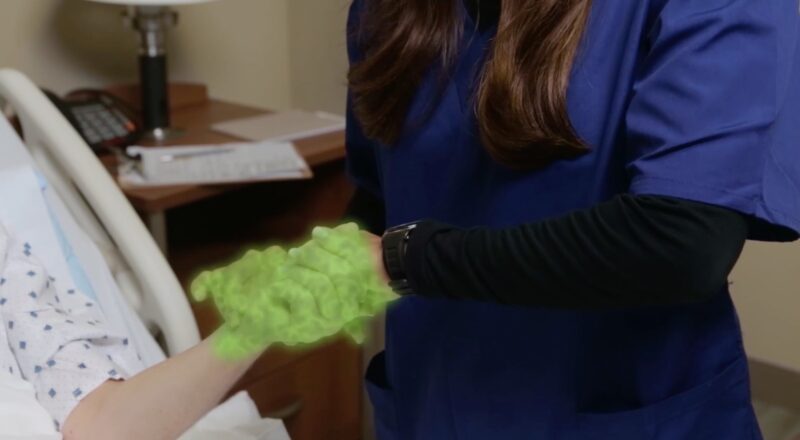Convenience Multiplies Staff Compliance and Brand Protection The lock-downs of the past year have protected businesses and institutions from pathogens beyond Coronavirus. For instance, Norovirus headlines have been few but in the proactive spirit of the “New Era of Smarter Food Safety” start preparing for this to change as the public breaks out to dine, […]
The “No-Excuses” Integrated Hand Hygiene Station
Quality, Reliability & Convenience Breed Compliance The latest integrated handwashing hardware innovation delivers unique Norovirus effectiveness along with protection from Coronavirus, Hep A, E-coli, Salmonella… and the common cold. Each component provides synergy in pursuit of the common goal of eliminating cross-infection in schools, HAIs (Healthcare Acquired Infections) and restaurant-driven outbreaks. It’s a dynamic visual […]
Food Safety Culture Starts at the Door
A unique combination kills Coronavirus, Norovirus, and Cold/Flu Viruses Culture kudos to Panera! They care enough about their team and those served to do their best-practice homework and put it into action. Their implementation of this public service demonstrates an understanding that formulation, dispenser, and location are all needed to stimulate actual use. Frequent use […]
Weak Handwashing—Awareness Week
Dramatic Improvements Available in Handwashing Compliance The infamy of poor handwashing compliance is shared by the healthcare and foodservice industries. Both are estimated to be south of 50% of their own policy standards. National Handwashing Awareness Week, December 6-12, was created for the public but for 2020/2021 has a special importance for caregivers, food workers […]
Noro’s New Nemesis in Nursing Homes
Norovirus-effective Formulation Ideal for Long-term Care This timely addition of a convenient, no-touch hand sanitizer with effectivity on Human Norovirus will save many nursing home lives. Norovirus is not often recognized as a killer but it is one of the leading causes of death in nursing homes. Before COVID-19, the CDC regularly reported 380,000 annual […]
Time-Saving Life-Saving Handwash Training
Language-free, Access-free Video for Diverse Caregivers Handwashing For Life® responds to healthcare’s immediate need for caregiver-convenient handwash training by giving them free access to videos created for a culturally diverse crew working in time-crunched conditions. The value of each training minute in healthcare has risen sharply with the COVID-19 response. But the time available has […]
Workforce Diversity Drives Language-Free Handwash Training Success. Free Access Announced.
Engage kitchen staff with the WHY … without words. The kitchen culture successfully drives handwashing compliance once it understands the WHY of frequent handwashing. Two decades ago Handwashing For Life took on the challenge to motivate food-worker handwashing. They choose to acknowledge the reality of language limitations and time. This resulted in a new standard […]
Welcome to Telespections – Virtual Food Safety Audits
“How Many Handsinks Do You All Have” Congratulations to South Carolina for their innovative work in developing virtual restaurant inspections recently reported at the Food Safety Summit. Handwashing For Life® advocates this move to “Telespections” as a way to increase the dialogue between restaurateurs and their inspector-consultants. Even after the COVID-19 crisis passes these can […]
Top Consumer Food Safety Risk: “Kitchen Staff Hygiene”
Call for Transparency from Farm to Fork Research reports that “In North America, almost two thirds of consumers cited fear of foodborne illness as the primary reason for wanting more information about their food source.” Surveyed consumers said their top food safety concerns included restaurant kitchen and wait-staff hygiene. The good news is that 93% […]
Engaging Staff with the “WHY” for Handwashing
Research Animation Nurtures the Culture Factor for Caregivers & Food Workers A caring culture is a powerful motivator for frontline handwashing. It is the culture, aggregate individual commitment, that most effectively drives compliance through the busiest of situations. This animation of an actual study graphically documents the potential spread of pathogens, including Coronavirus. Yes, this […]


